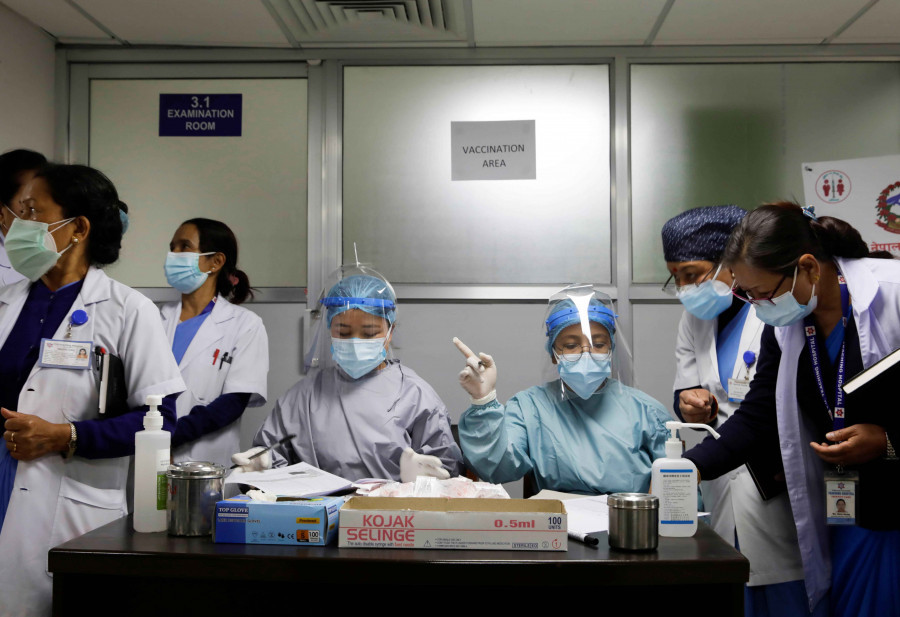Editorial
Recruitment tightrope
The imbalance of healthcare professionals could hinder our efforts to improve healthcare in Nepal.
A cabinet meeting held on June 14 gave the go-ahead to the government to conclude a deal allowing Nepal to send nurses to the United Kingdom. Under the proposal, Nepali nurses will now be permitted to work in Britain under a bilateral labour agreement the two governments are expected to sign in the ensuing weeks. A combination of Brexit and Covid-19 has wreaked havoc on the UK’s job market, particularly in the health sector, which has been reeling from a continuous onslaught of the pandemic. With free movement of people now restricted between Europe and the UK, Britain has had to look beyond the borders of Europe to plug its labour gap.
The proposal to send Nepali nurses to the UK is significant, perhaps because it is the first instance where a country has approached Nepal to source its skilled labour. While the authorities in Nepal tout the proposal as its finest yet in the labour sector, it should be expected that both governments are aware that Nepal is on the international recruitment red list—operated by the World Health Organisation (WHO)—which prevents the developed countries from recruiting workers from countries that lack health workers or have an underdeveloped health system.
Nepal, for decades, has been sending its workforce to countries mainly in the Middle East to meet the labour shortages there while failing to build an environment to retain a skilled force which could otherwise be used in various projects in Nepal. Their remittance has helped uplift swathes of people from abject poverty and is a source of foreign exchange reserves for the country. But the authorities have done little to ensure that the skills acquired by migrant workers are put to good use in Nepal. The proposed deal with the UK could invite a similar scenario in a rather critical sector if the authorities fail to weigh the pros and cons carefully.
Allowing the UK to recruit our skilled workforce could hurt our beleaguered health sector, which has been struggling amid the pandemic. As it is, rural Nepal suffers immensely from lack of health workers, and any imbalance in the structure of healthcare professionals could only end up hindering our efforts to improve healthcare in our country. But the lure of foreign exchange earnings is irresistible. The need to apply for jobs abroad is pure economics; it reflects failed policies that force scores of people in Nepal, skilled or otherwise, to search for better opportunities.
There is little in terms of financial reward for healthcare professionals in Nepal, and hence those that get an opportunity to work abroad grab it with both hands. The Nepal government has made a feeble stand, demanding that nurses under the proposal return after five years; but what is of interest is what can the government provide to those that they expect to return? If history stands to predict our future actions, this new avenue of sending healthcare professionals, in all likelihood, will only create a sourcing base for the developed nations to fill gaps in their health sector at the expense of Nepal.




 18.12°C Kathmandu
18.12°C Kathmandu














